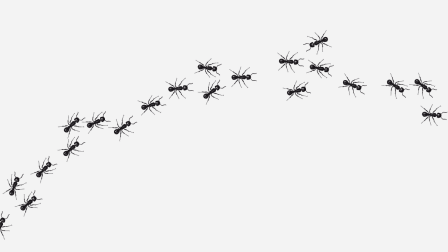Can Garden Plants Really Repel Mosquitoes?
It’s true that the biting bugs don’t like marigolds, catnip, or chrysanthemums. But you’ll need to use more than plants to protect your yard—and yourself.

Mosquito season is here, and you may be looking for reliable ways to keep the pests out of your yard (and away from your body). Internet advice suggests an appealing strategy that doesn’t involve traps or sprays: Just fill your garden with certain outdoor plants that mosquitoes can’t stand.
But while some plants do contain pest-repellant chemical compounds, experts say a well-equipped garden isn’t enough to keep mosquitoes at bay. You’ll need to do more to ward off bites. Here, the science behind insect-repelling plants—plus the safest and most effective ways to protect yourself and your space.
Using Mosquito-Repellent Plants
Certain plants have innate pest-repelling properties. For example, research has found that some marigold species, catnip, and chrysanthemums contain phytochemicals that prevent insects (including mosquitoes) from feeding on them. And oils from some plants are commonly used in bug spray, though such products tend to be low performers in CR’s tests.
How to Keep Mosquitoes Away
The best method for preventing itchy mosquito bites and protecting yourself from vector-borne illness is to apply insect repellant to your body, Coats says.
Opt for a product registered by the Environmental Protection Agency that’s been shown to prevent mosquito bites when applied to skin. While deet is safe when used as directed, if you’d rather skip it, Moore says active ingredients such as picaridin (which is based on a compound found in pepper plants) and oil of lemon eucalyptus (which is refined from a plant-derived oil) can also work well. (Not all products with these active ingredients are equally effective. See our picks for the best insect repellents.)
Making some modifications to your outdoor space is another safe, cost-effective way to prevent mosquitoes from taking up residence in your yard. Moore suggests eliminating standing water where mosquitoes could breed. For example, drill holes in flower pots to be sure they drain, make sure your gutters and downspouts are clean and functional, and try not to overwater your plants. (Better yet, plant a rain garden.)
Running a few outdoor fans on your porch may offer a temporary solution, according to Dill. Mosquitoes are poor flyers, and the extra breeze makes it even harder for them to fly and land. That’s why you don’t experience as many bites on a windy day.
And while you should avoid indiscriminate bug zappers, certain types of mosquito traps can help control the pests in your yard.
Of course, there’s no harm in planting flowers that don’t attract mosquitoes, like marigolds and chrysanthemums. Just remember you’ll have to use some other more traditional strategies, too.




